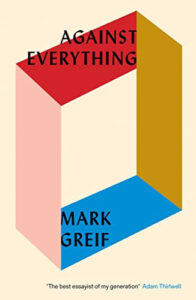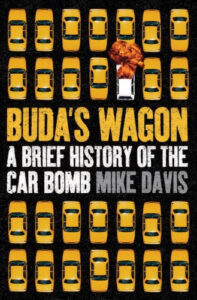 A History of the World in Seven Cheap Things: A Guide to Capitalism, Nature, and the Future of the Planet
theory
A History of the World in Seven Cheap Things: A Guide to Capitalism, Nature, and the Future of the Planet
theory
 A People’s History of the World
A People’s History of the World
The best-selling comprehensive history of the world, from the perspective of struggling peoples throughout the ages—now with new material and a foreword by Howard Zinn From the earliest human societies to the Holy Roman Empire, from the Middle Ages to the Enlightenment, from the Industrial Revolution to the end of the twentieth century, Chris Harman provides a brilliant and comprehensive history of the human race. Eschewing the standard accounts of “Great Men,” of dates and kings, Harman offers a groundbreaking counter-history, a breathtaking sweep across the centuries in the tradition of “history from below.” In a fiery narrative, he shows...
 A World Without Police
A World Without Police
If police are the problem, what’s the solution? Tens of millions of people poured onto the streets for Black Lives Matter, bringing with them a wholly new idea of public safety, common security, and the delivery of justice, communicating that vision in the fiery vernacular of riot, rebellion, and protest. A World Without Police transcribes these new ideas—written in slogans and chants, over occupied bridges and hastily assembled barricades—into a compelling, must-read manifesto for police abolition. Compellingly argued and lyrically charged, A World Without Police offers concrete strategies for confronting and breaking police power, as a first step toward building...
 Bad Gays
Bad Gays
An unconventional history of homosexuality We all remember Oscar Wilde, but who speaks for Bosie? What about those ‘bad gays’ whose unexemplary lives reveal more than we might expect? Many popular histories seek to establish homosexual heroes, pioneers, and martyrs but, as Huw Lemmey and Ben Miller argue, the past is filled with queer people whose sexualities and dastardly deeds have been overlooked despite their being informative and instructive. Based on the hugely popular podcast series of the same name, Bad Gays asks what we can learn about LGBTQ+ history, sexuality and identity through its villains, failures, and baddies. With...
 Being Numerous
Being Numerous
An urgent challenge to the prevailing moral order from one of the freshest, most compelling voices in radical politics today Being Numerous shatters the mainstream consensus on politics and personhood, offering in its place a bracing analysis of a perilous world and how we should live in it. Beginning with an interrogation of what it means to fight fascism, Natasha Lennard explores the limits of individual rights, the criminalization of political dissent, the myths of radical sex, and the ghosts in our lives. At once politically committed and philosophically capacious, Being Numerous is a revaluation of the idea that the...
 Capitalism and the Sea
Capitalism and the Sea
What keeps capitalism afloat? The global ocean has through the centuries served as a trade route, strategic space, fish bank and supply chain for the modern capitalist economy. While sea beds are drilled for their fossil fuels and minerals, and coastlines developed for real estate and leisure, the oceans continue to absorb the toxic discharges of our carbon civilization - warming, expanding, and acidifying the blue water part of the planet in ways that will bring unpredictable but irreversible consequences for the rest of the biosphere. In this bold and radical new book, Campling and Colás analyze these and other...
 City of Segregation
City of Segregation
A majestic one-hundred-year study of segregation in Los Angeles City of Segregation documents one hundred years of struggle against the enforced separation of racial groups through property markets, constructions of community, and the growth of neoliberalism. This movement history covers the decades of work to end legal support for segregation in 1948; the 1960s Civil Rights movement and CORE’s efforts to integrate LA’s white suburbs; and the 2006 victory preserving 10,000 downtown residential hotel units from gentrification enfolded within ongoing resistance to the criminalization and displacement of the homeless. Andrea Gibbons reveals the shape and nature of the racist ideology...
 Communal Luxury
Communal Luxury
Reclaiming the legacy of the Paris Commune for the twenty-first century Kristin Ross’s highly acclaimed work on the thought and culture of the Communard uprising of 1871 resonates with the motivations and actions of contemporary protest, which has found its most powerful expression in the reclamation of public space. Today’s concerns—internationalism, education, the future of labor, the status of art, and ecological theory and practice—frame and inform her carefully researched restaging of the words and actions of individual Communards. This original analysis of an event and its centrifugal effects brings to life the workers in Paris who became revolutionaries, the...
 Contingency, Hegemony, Universality
Contingency, Hegemony, Universality
What is the contemporary legacy of Gramsci’s notion of Hegemony? How can universality be reformulated now that its spurious versions have been so thoroughly criticized? In this ground-breaking project, Judith Butler, Ernesto Laclau and Slavoj Žižek engage in a dialogue on central questions of contemporary philosophy and politics. Their essays, organized as separate contributions that respond to one another, range over the Hegelian legacy in contemporary critical theory, the theoretical dilemmas of multiculturalism, the universalism-versus-particularism debate, the strategies of the Left in a globalized economy, and the relative merits of post-structuralism and Lacanian psychoanalysis for a critical social theory. While...
 Critique of Economic Reason
Critique of Economic Reason
André Gorz’s earlier books—from Ecology as Politics to Farewell to the Working Class and Paths to Paradise—have informed and inspired the most radical currents in Green movements in Europe and America over the last two decades. In Critique of Economic Reason, he offers his fullest account to date of the terminal crisis of a system where every activity and aspiration has been subjected to the rule of the market. By carefully delineating the existential and cultural limits of economic rationality, he emphasizes the urgent need to create a society which rejects the work ethic in favor of an emancipatory ethic...
 Critique of Everyday Life
Critique of Everyday Life
Henri Lefebvre’s magnum opus: a monumental exploration of contemporary society. Henri Lefebvre’s three-volume Critique of Everyday Life is perhaps the richest, most prescient work by one of the twentieth century’s greatest philosophers. Written at the birth of post-war consumerism, the Critique was a philosophical inspiration for the 1968 student revolution in France and is considered to be the founding text of all that we know as cultural studies, as well as a major influence on the fields of contemporary philosophy, geography, sociology, architecture, political theory and urbanism. A work of enormous range and subtlety, Lefebvre takes as his starting-point and...
 Darkwater
Darkwater
A new edition of the classic work of Black history and politics with a new introduction by award-winning poet and novelist Honorée Fanonne Jeffers. “Du Bois essentially defined black America in the twentieth century.” – Ta-Nehisi Coates “I have been in the world, but not of it,” begins this searing and passionate book by legendary scholar W.E.B. Du Bois. A continuation of his celebrated work The Souls of Black Folk, Darkwater describes the devastation of segregation, slavery, and the global color line that veiled half the world’s people in shadow. First published in 1920, Darkwater gives voice to the rising...
 Empire of Borders
Empire of Borders
The United States is outsourcing its border patrol abroad—and essentially expanding its borders in the process The twenty-first century has witnessed the rapid hardening of international borders. Security, surveillance, and militarization are widening the chasm between those who travel where they please and those whose movements are restricted. But that is only part of the story. As journalist Todd Miller reveals in Empire of Borders, the nature of US borders has changed. These boundaries have effectively expanded thousands of miles outside of US territory to encircle not simply American land but Washington’s interests. Resources, training, and agents from the United...
 Feminism for the 99%
Feminism for the 99%
Named one of Vogue’s “Most Anticipated Books of 2019” This is a manifesto for the 99 percent Unaffordable housing, poverty wages, inadequate healthcare, border policing, climate change—these are not what you ordinarily hear feminists talking about. But aren’t they the biggest issues for the vast majority of women around the globe? Taking as its inspiration the new wave of feminist militancy that has erupted globally, this manifesto makes a simple but powerful case: feminism shouldn’t start—or stop—with the drive to have women represented at the top of their professions. It must focus on those at the bottom, and fight for...
 Feminist Antifascism
Feminist Antifascism
Feminism as the bulwark against fascism In this exciting, innovative work, Polish feminist philosopher Ewa Majewska proposes a specifically feminist politics of antifascism. Mixing theoretical discussion with engaging reflections on personal experiences, Majewska proposes what she calls “counterpublics of the common” and “weak resistance,” offering an alternative to heroic forms of subjectivity produced by neoliberal capitalism and contemporary fascism.
 Feminist City
Feminist City
Feminist City is an ongoing experiment in living differently, living better, and living more justly in an urban world. We live in the city of men. Our public spaces are not designed for female bodies. There is little consideration for women as mothers, workers or carers. The urban streets often are a place of threats rather than community. Gentrification has made the everyday lives of women even more difficult. What would a metropolis for working women look like? A city of friendships beyond Sex and the City. A transit system that accommodates mothers with strollers on the school run. A...

 A Massacre in Mexico: The True Story behind the Missing Forty-Three Students
A Massacre in Mexico: The True Story behind the Missing Forty-Three Students  Against Everything: On Dishonest Times
Against Everything: On Dishonest Times  Becoming Abolitionists: Police, Protest and the Pursuit of Freedom
Becoming Abolitionists: Police, Protest and the Pursuit of Freedom  Buda’s Wagon: A Brief History of the Car Bomb
Buda’s Wagon: A Brief History of the Car Bomb